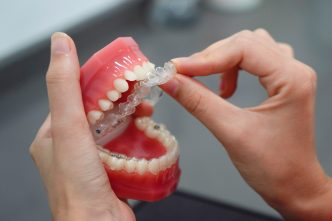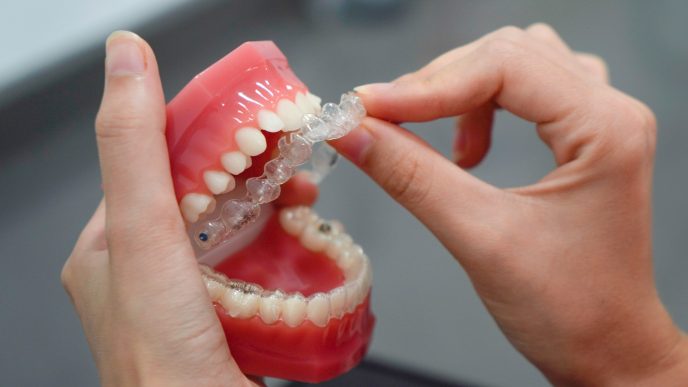The teenage years are always a wild ride—big emotions, new experiences, and the push for independence. But in today’s world, there’s a growing challenge that’s impossible to ignore: addiction. From vaping to prescription meds, the temptation to experiment is everywhere. So how can parents step in, offering support without shutting down communication?
The Hard Truth About Teen Addiction
Teen addiction is on the rise, and it’s hitting earlier than ever. What used to be the occasional experimental phase has become a full-blown crisis, with many teens battling substance use by the time they hit high school. With easy access to vaping, cannabis, and prescription drugs, it’s no longer just about peer pressure—it’s a bigger societal issue.
In this scenario, intensive outpatient treatment for teens is your best option. This kind of support gives them the tools to break free from harmful habits while still keeping them close to home and school life. Unlike in-patient programs, they can maintain some sense of normalcy while getting the help they need. Parents often think it’s the last resort, but getting ahead of the problem before it spirals is the real win here.
Understanding Why Teens Turn to Substances
Why do so many teens start down this road? It’s not as simple as just wanting to rebel or fit in with the cool crowd anymore. The pressure to succeed, manage stress, and even cope with anxiety and depression is real—and substance use is sometimes the escape route teens choose, even if it’s not the right one.
Today’s teens are exposed to an insane amount of information through social media. What looks like harmless fun can easily become a coping mechanism when things get tough. The constant stream of content, sometimes glamorizing dangerous behavior, can make substances seem like the solution to teenage stresses. Unfortunately, that often leads to addiction before anyone realizes what’s happening.
But not all hope is lost. Knowing the “why” behind the addiction helps parents take the right steps toward getting their teens the help they need. Having open conversations and making sure there’s space for vulnerability can do wonders in early intervention. And when that’s not enough, it’s time to consider outside resources before things get worse.
Spotting the Signs Early On
One of the toughest parts of dealing with addiction in teens is knowing when to act. Teenagers are experts at hiding their struggles, especially from their parents. You might chalk up changes in their behavior to normal teenage angst, but there are key warning signs you can look out for.
Changes in sleep patterns, mood swings, and declining grades are just the surface. If they’re isolating themselves from friends or family, becoming more secretive about their whereabouts, or suddenly showing disinterest in things they used to love, these might be signals that something deeper is going on.
It’s easy to second-guess yourself as a parent—am I overreacting, or is this just a phase? But it’s always better to trust your instincts. Open up conversations early, and let them know they have a safety net. But if their habits are starting to interfere with daily life, it’s time to get serious. And this is where professional help steps in, not as a punishment, but as a necessary move to protect their future.
Building a Healthy Relationship with Your Teen
The core of prevention and recovery is the relationship you build with your child. When you foster trust, it’s easier for them to come to you, even when things are messy. Open, non-judgmental conversations about drug use, mental health, and their feelings of pressure are key. Teens need to know they can talk to you without immediate fear of punishment or rejection.
That doesn’t mean you shouldn’t set boundaries—boundaries are essential—but those boundaries should come from a place of care and concern, not control. No matter how out of control things may feel, maintaining a healthy relationship with your teen will always be one of your biggest tools. It’s not just about talking, though—it’s about listening. Active listening builds trust and understanding, two things that make all the difference when you’re tackling tough issues like addiction.
What Happens When They’re in Too Deep?
Sometimes, despite all your best efforts, things get worse. Maybe your teen has already tried rehab or other forms of therapy, but they keep slipping back into the same habits. It’s frustrating and heartbreaking, but relapse is often part of the process. Addiction isn’t a straight path to recovery—it’s full of setbacks.
In cases like these, it’s important to remember that seeking help isn’t a sign of failure but rather a necessary step toward long-term recovery. There’s a range of treatment options to explore, and the right one will depend on your teen’s specific needs. Maybe they need more one-on-one counseling, or perhaps they’d benefit from group therapy where they can connect with others facing similar struggles. There’s no one-size-fits-all answer, but there is always a way forward.
Letting them know you’re there for them, no matter how many times they fall, is essential. Encouraging resilience and helping them navigate setbacks without judgment can be the game-changer they need to keep going.
The Role of Community Support in Teen Recovery
No one goes through recovery alone, and that includes teens. When they feel isolated or misunderstood, the temptation to return to substances becomes harder to resist. That’s where community plays a huge role—not just friends and family, but professional networks, schools, and support groups dedicated to teen recovery.
For many teens, having a community that doesn’t judge them for their past but supports their future makes all the difference. From youth centers to local recovery groups, these connections give them a sense of belonging and hope that things can and will get better. It’s about showing them that their story doesn’t end with addiction—it’s just one chapter in a much bigger journey.
As a parent, plugging into these communities can offer you support too. Knowing you’re not alone in this fight and having resources at your disposal can make a challenging situation feel a lot more manageable.
Final Thoughts
The road to recovery is never easy, especially when it comes to teens battling addiction. But with the right tools, professional help, and a strong parent-teen relationship, the future doesn’t have to feel uncertain. Whether it’s starting a conversation early or stepping in with outpatient care, each step forward is progress. Teens may be struggling now, but with support, they can reclaim their lives and move toward a brighter, healthier future.












